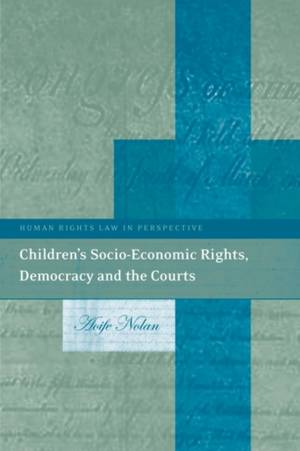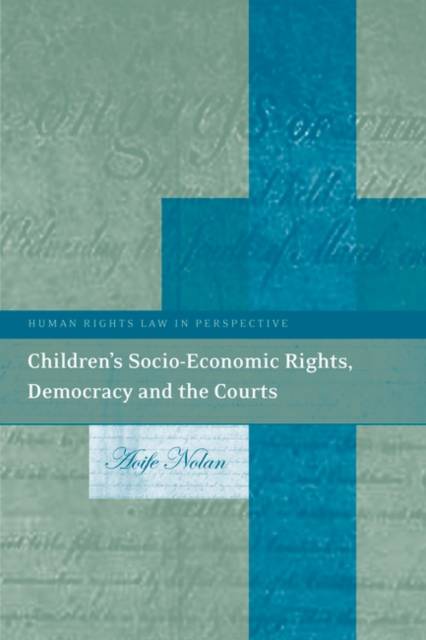
- Afhalen na 1 uur in een winkel met voorraad
- Gratis thuislevering in België vanaf € 30
- Ruim aanbod met 7 miljoen producten
- Afhalen na 1 uur in een winkel met voorraad
- Gratis thuislevering in België vanaf € 30
- Ruim aanbod met 7 miljoen producten
Zoeken
Omschrijving
Aoife Nolan's important book uses constitutional and democratic theory, human rights, and case law from a variety of jurisdictions to show how the courts can and should give effect to children's socio-economic rights. Constituting a major contribution to scholarship, it is the first book to examine together children's socio-economic rights; children as democratic citizens; the implications of children's rights for democratic constitutional theory; the role of courts in ensuring the enforcement of children's rights and the debates surrounding the litigation and adjudication of socio-economic rights.
'Children's rights were often thought to be synonymous with economic and social welfare prior to the adoption of the Convention on the Rights of the Child in 1989. Ironically, since that time, remarkably little scholarship has been devoted to the vitally important economic and social rights dimensions of children's rights. Nolan's book singlehandedly remedies that neglect and does so in a sophisticated, nuanced and balanced way. It provides a superb account of the pros and cons of judicial activism in promoting these rights.'
Philip Alston, John Norton Pomeroy Professor, NYU Law School
Winner of the Kevin Boyle Book Prize 2012 for Outstanding Legal Scholarship
'Children's rights were often thought to be synonymous with economic and social welfare prior to the adoption of the Convention on the Rights of the Child in 1989. Ironically, since that time, remarkably little scholarship has been devoted to the vitally important economic and social rights dimensions of children's rights. Nolan's book singlehandedly remedies that neglect and does so in a sophisticated, nuanced and balanced way. It provides a superb account of the pros and cons of judicial activism in promoting these rights.'
Philip Alston, John Norton Pomeroy Professor, NYU Law School
Winner of the Kevin Boyle Book Prize 2012 for Outstanding Legal Scholarship
Specificaties
Betrokkenen
- Auteur(s):
- Uitgeverij:
Inhoud
- Aantal bladzijden:
- 338
- Taal:
- Engels
- Reeks:
- Reeksnummer:
- nr. 16
Eigenschappen
- Productcode (EAN):
- 9781849467278
- Verschijningsdatum:
- 19/06/2014
- Uitvoering:
- Paperback
- Formaat:
- Trade paperback (VS)
- Afmetingen:
- 155 mm x 231 mm
- Gewicht:
- 498 g

Alleen bij Standaard Boekhandel
+ 145 punten op je klantenkaart van Standaard Boekhandel
Beoordelingen
We publiceren alleen reviews die voldoen aan de voorwaarden voor reviews. Bekijk onze voorwaarden voor reviews.








